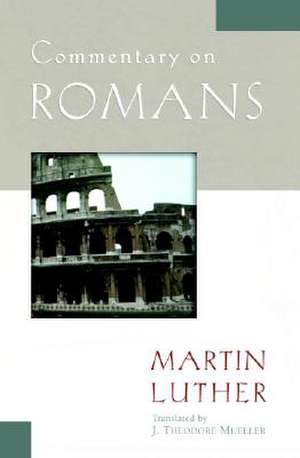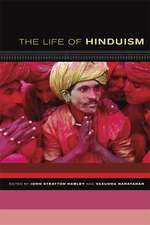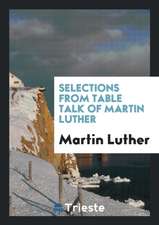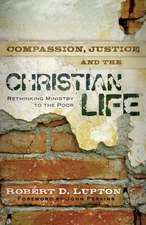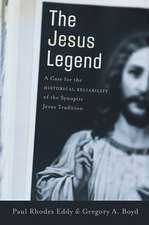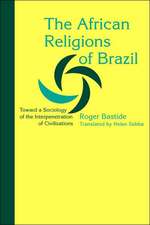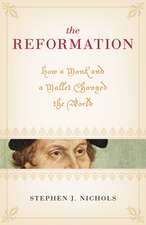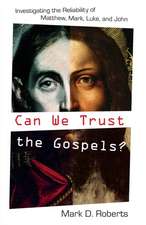Commentary on Romans
Autor Martin Luther, J. Theodore Muelleren Limba Engleză Paperback – 19 mai 2003
Preț: 106.14 lei
Nou
Puncte Express: 159
Preț estimativ în valută:
20.31€ • 21.09$ • 16.94£
20.31€ • 21.09$ • 16.94£
Carte disponibilă
Livrare economică 03-17 martie
Preluare comenzi: 021 569.72.76
Specificații
ISBN-13: 9780825431203
ISBN-10: 0825431204
Pagini: 224
Dimensiuni: 135 x 200 x 16 mm
Greutate: 0.25 kg
Editura: SPCK – Kregel
ISBN-10: 0825431204
Pagini: 224
Dimensiuni: 135 x 200 x 16 mm
Greutate: 0.25 kg
Editura: SPCK – Kregel
Textul de pe ultima copertă
In the fall of 1515 a professor began to teach the book of Romans to his university students. As he painstakingly prepared his lectures, he gradually realized, and then embraced, the book's central theme--salvation is by grace alone through faith alone. That spark of truth ignited Martin Luther's own spiritual life and the fires of reformation that would follow.
Luther's Commentary on Romans presents the very earliest developments of Luther's evangelical theology, which he described as "the theology of the Cross." This popular edition, translated by Theodore Mueller, organizes Luther's notes for modern readers, using explanatory subheadings and parenthetical comments to clarify the great Reformer's thoughts. Some views, which Luther later modified or discarded, have been omitted in order to avoid confusion with his later works. The result is a text that is concise, practical, and devotional.
Martin Luther (1483-1546) left his comfortable upbringing to become a Roman Catholic monk and later a professor of theology at the University of Wittenberg in Saxony. His study and teaching of the Greek text of the New Testament represent the beginnings of modern textual study, and his widely disseminated writings sparked the Protestant Reformation in Europe. Other works by Luther include Commentary on Galatians and Commentary on First and Second Peter and Jude.
Luther's Commentary on Romans presents the very earliest developments of Luther's evangelical theology, which he described as "the theology of the Cross." This popular edition, translated by Theodore Mueller, organizes Luther's notes for modern readers, using explanatory subheadings and parenthetical comments to clarify the great Reformer's thoughts. Some views, which Luther later modified or discarded, have been omitted in order to avoid confusion with his later works. The result is a text that is concise, practical, and devotional.
Martin Luther (1483-1546) left his comfortable upbringing to become a Roman Catholic monk and later a professor of theology at the University of Wittenberg in Saxony. His study and teaching of the Greek text of the New Testament represent the beginnings of modern textual study, and his widely disseminated writings sparked the Protestant Reformation in Europe. Other works by Luther include Commentary on Galatians and Commentary on First and Second Peter and Jude.
Notă biografică
Martin Luther (1483-1546) was born in Germany and is famous for his protest, The Ninety-five Theses, which he nailed to the door of the castle church of Wittenberg. The son of middle-class parents, Luther left his comfortable life to become a monk. Luther's own spiritual awakening was sparked by his study of the Greek text of Paul's letter to the Romans, which challenged him with the statement, "The just shall live by faith."
